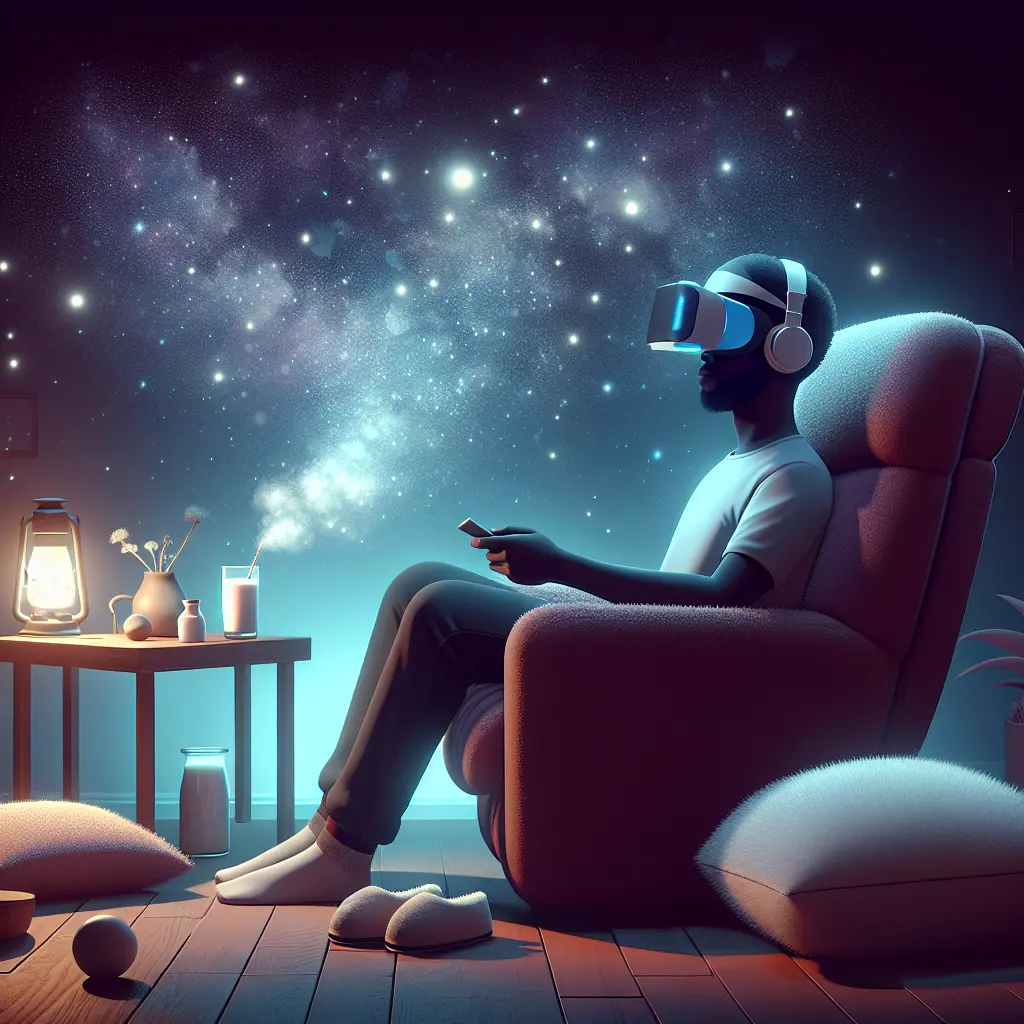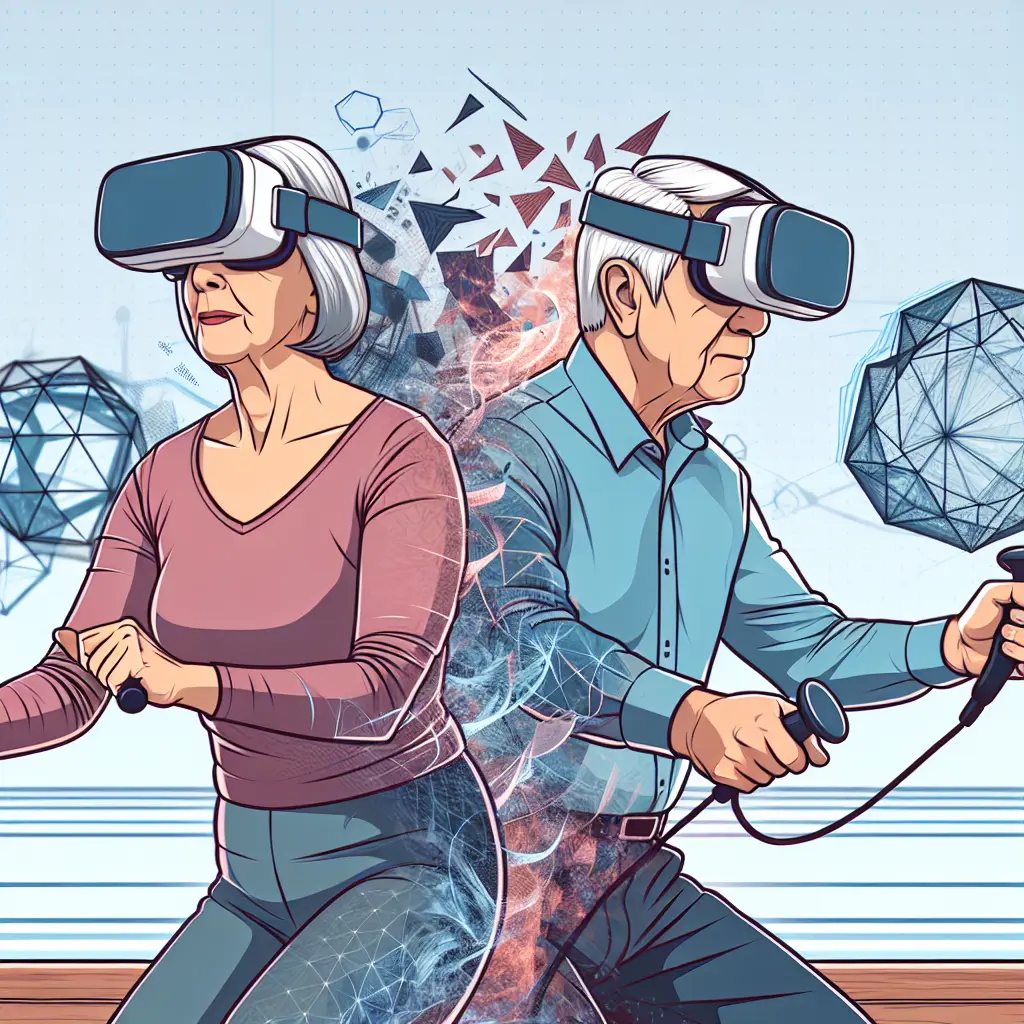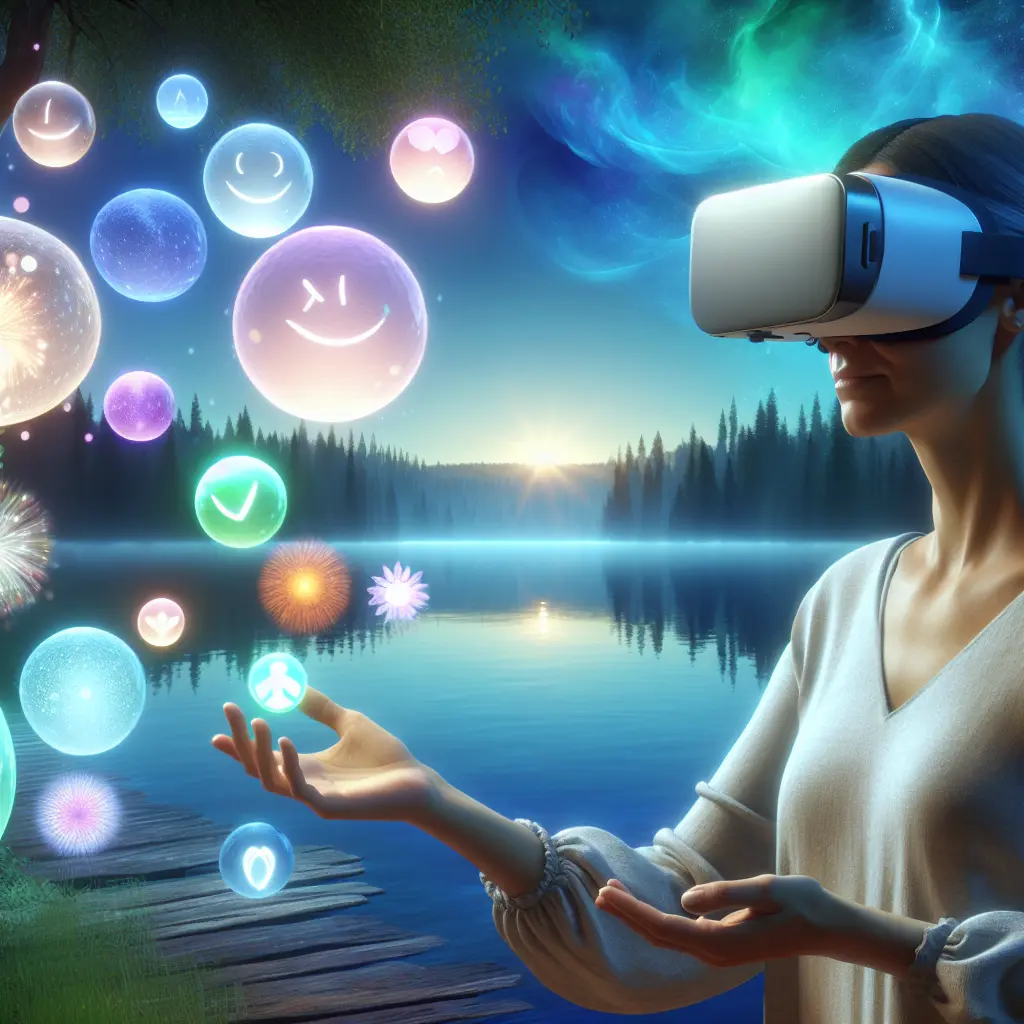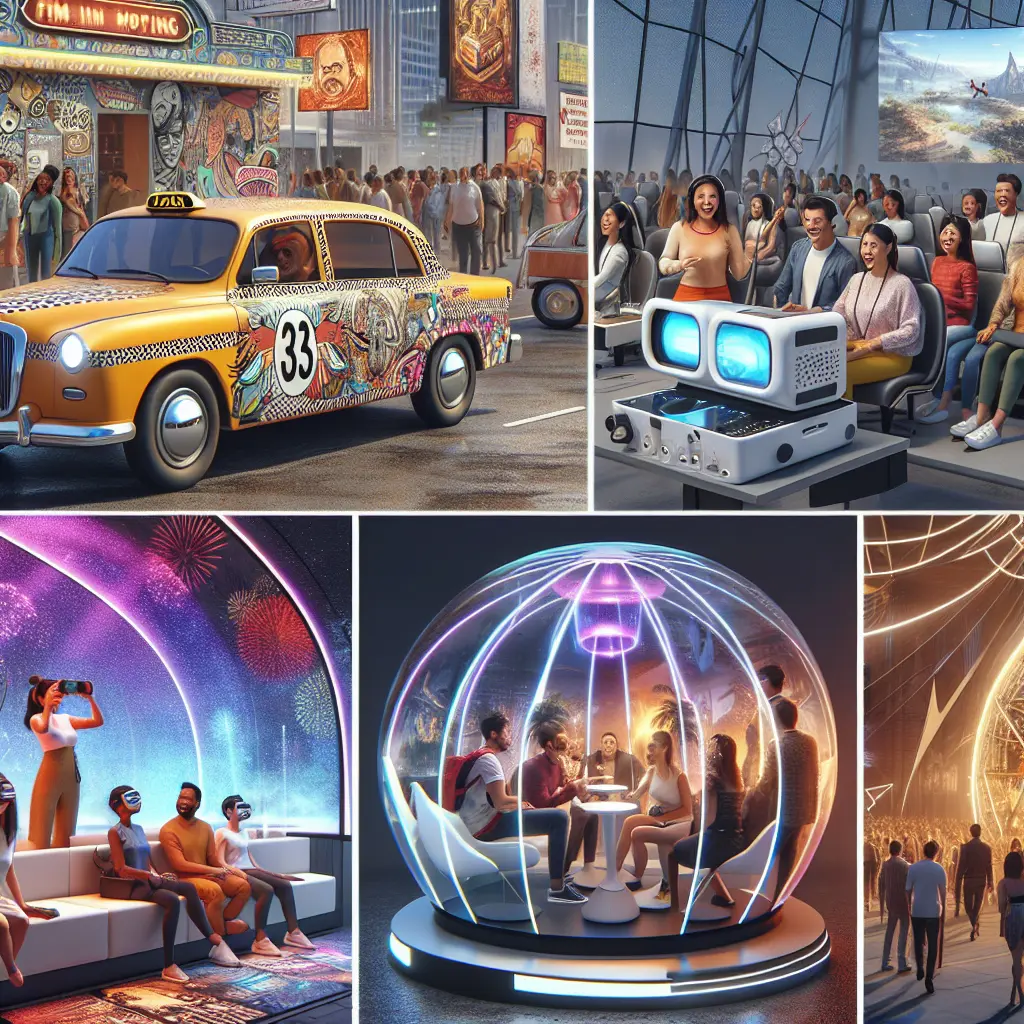In today's fast-paced world, where stress and sleep disorders like insomnia are increasingly prevalent, Virtual Reality Therapy is emerging as a groundbreaking solution for enhancing sleep quality. This innovative approach combines cutting-edge technology with relaxation techniques to create immersive environments that promote rest and rejuvenation. By leveraging VR for sleep improvement, individuals can explore artistic VR environments specifically designed to soothe the mind and body, offering a unique blend of arts and entertainment within VR therapy.
VR technology offers a new dimension to sleep therapy, allowing users to experience VR meditation for better sleep and virtual reality relaxation experiences that transcend traditional methods. These VR sleep therapy applications not only aid in stress relief but also serve as creative tools for sleep enhancement. Virtual reality and sleep disorders are becoming an area of intense study, as VR therapy for insomnia and other sleep challenges offers promising results.
The entertainment-focused VR therapy programs are tailored to engage users in an enjoyable yet effective manner, transforming the way we perceive relaxation and mental health care. Virtual reality sleep solutions and VR sleep clinics are increasingly incorporating these technologies, offering personalized VR sleep improvement programs that cater to individual needs.
As we delve deeper into the realm of virtual reality for mental health, it becomes clear that VR technology for better rest is not just a futuristic concept but a present-day reality. Join us as we explore how creative VR applications are redefining the landscape of sleep enhancement, offering innovative solutions that promise not just better sleep, but a better quality of life.
In recent years, Virtual Reality Therapy has gained significant attention as a potential solution for sleep quality enhancement. This innovative approach utilizes cutting-edge technology to create immersive environments that help alleviate sleep disorders like insomnia. As virtual reality becomes increasingly integrated into mental health treatment, its role in sleep improvement cannot be understated. Let's explore how VR is being used to transform sleep therapy and the potential it holds for better rest.
The Role of Virtual Reality Therapy in Improving Sleep Quality
Virtual Reality Therapy for sleep focuses on creating simulated environments that promote relaxation and stress relief. By engaging users in artistic VR environments specifically designed to soothe the mind, individuals can experience VR meditation for better sleep and virtual reality relaxation experiences that go beyond traditional methods. A study published by the National Institutes of Health highlights the potential of VR technology in creating personalized therapies tailored to individual needs.
Immersive Environments: VR technology provides an immersive experience where users can explore serene landscapes, calming sounds, and guided meditations. These elements are crucial in VR for stress relief and sleep, allowing individuals to disconnect from their daily stressors and enter a state of relaxation.
Personalization: One of the standout features of VR sleep therapy applications is their ability to tailor experiences to the user's preferences. By customizing the environment and content, these applications cater to specific triggers that may hinder one's ability to fall asleep or maintain restful sleep.
Interactive Elements: Unlike passive forms of relaxation, virtual reality allows for interaction, which can be both entertaining and therapeutic. Entertainment-focused VR therapy engages users, making the process enjoyable while effectively addressing sleep disorders.
The Science Behind Virtual Reality and Sleep Disorders
Research has shown that Virtual Reality Therapy can be an effective tool in managing sleep disorders such as insomnia. According to a study conducted by the National Institute on Drug Abuse, VR therapy for insomnia shows promise due to its ability to simulate environments that promote deep relaxation and stress reduction. The study suggests that VR technology for better rest is not just a futuristic concept but a viable present-day solution.
Case Study: VR Sleep Clinics: Several VR sleep clinics have emerged, offering specialized VR sleep improvement programs. These clinics provide patients with access to artistic VR environments for sleep, combining arts in virtual reality therapy with practical techniques to enhance relaxation and promote healthy sleep patterns.
Relaxation Techniques in VR
Virtual reality relaxation experiences incorporate various techniques such as:
- Guided Imagery: Users are guided through peaceful scenarios that engage the senses and distract from anxiety-inducing thoughts.
- Progressive Muscle Relaxation: This technique involves tensing and relaxing different muscle groups, which can be enhanced through the visual and auditory components of VR.
- Mindfulness Meditation: VR meditation for better sleep leverages mindfulness practices to help users focus on the present moment, reducing racing thoughts that can interfere with sleep.
Arts and Entertainment in Virtual Reality Therapy
Artistic expression within virtual reality is gaining traction as a powerful tool for creative VR for sleep enhancement. By integrating elements of art and entertainment into VR therapy, individuals are provided with unique experiences that foster relaxation while also being engaging and enjoyable.
- VR Art Installations: Some platforms offer VR art installations designed to calm the mind and body. These installations are not only visually captivating but are also crafted to evoke tranquility and aid in relaxation.
- Entertainment-Focused Sessions: By incorporating entertainment in VR therapy, users can enjoy activities that simultaneously promote mental health and improve sleep quality.
Future Prospects of Virtual Reality Sleep Solutions
As research continues to uncover the benefits of virtual reality for mental health, the future of VR sleep solutions looks promising. Continued innovation in this field may lead to more accessible and effective therapies that can address a wide range of sleep disorders.
- Expansion of VR Sleep Clinics: With the growing recognition of VR technology's benefits, more clinics are likely to adopt these methods, offering comprehensive programs that combine traditional treatments with cutting-edge technology.
- Integration with Other Therapies: Combining VR therapy with other forms of treatment could enhance its effectiveness, providing holistic solutions for individuals struggling with sleep disorders.
In conclusion, Virtual Reality Therapy presents a transformative approach to sleep improvement, leveraging immersive experiences and personalized programs to enhance sleep quality. As we explore the potential of VR technology in mental health care, it becomes clear that this innovative solution holds significant promise for those seeking better rest and an improved quality of life.
In summary, Virtual Reality Therapy is emerging as a promising solution for enhancing sleep quality through its innovative use of immersive environments and personalized experiences. This technology stands out for several reasons:
- Immersive Environments: VR offers serene landscapes and calming sounds that facilitate stress relief and relaxation, essential for improved sleep.
- Personalization: The ability to tailor VR experiences to individual preferences helps address specific sleep challenges more effectively.
- Interactive Elements: Engaging and therapeutic interactions make the process enjoyable while targeting sleep disorders like insomnia.
Research supports VR's potential in managing sleep disorders, as demonstrated by studies highlighting its effectiveness in promoting deep relaxation and stress reduction. Virtual reality relaxation techniques, such as guided imagery, progressive muscle relaxation, and mindfulness meditation, enhance these benefits further. The integration of arts and entertainment into VR therapy adds a unique dimension, offering captivating experiences that promote tranquility.
Looking ahead, the future of VR sleep solutions is bright, with prospects for expanding VR sleep clinics and integrating VR with other therapeutic approaches. As this field evolves, it holds significant promise for those seeking better rest and an improved quality of life.
We invite you to reflect on how virtual reality might transform your approach to sleep and encourage you to share your experiences or insights. Could VR therapy be the key to unlocking your path to restful nights? Let us know your thoughts in the comments below. Until then, may your nights be peaceful and your dreams be vivid.







Leave a Comment